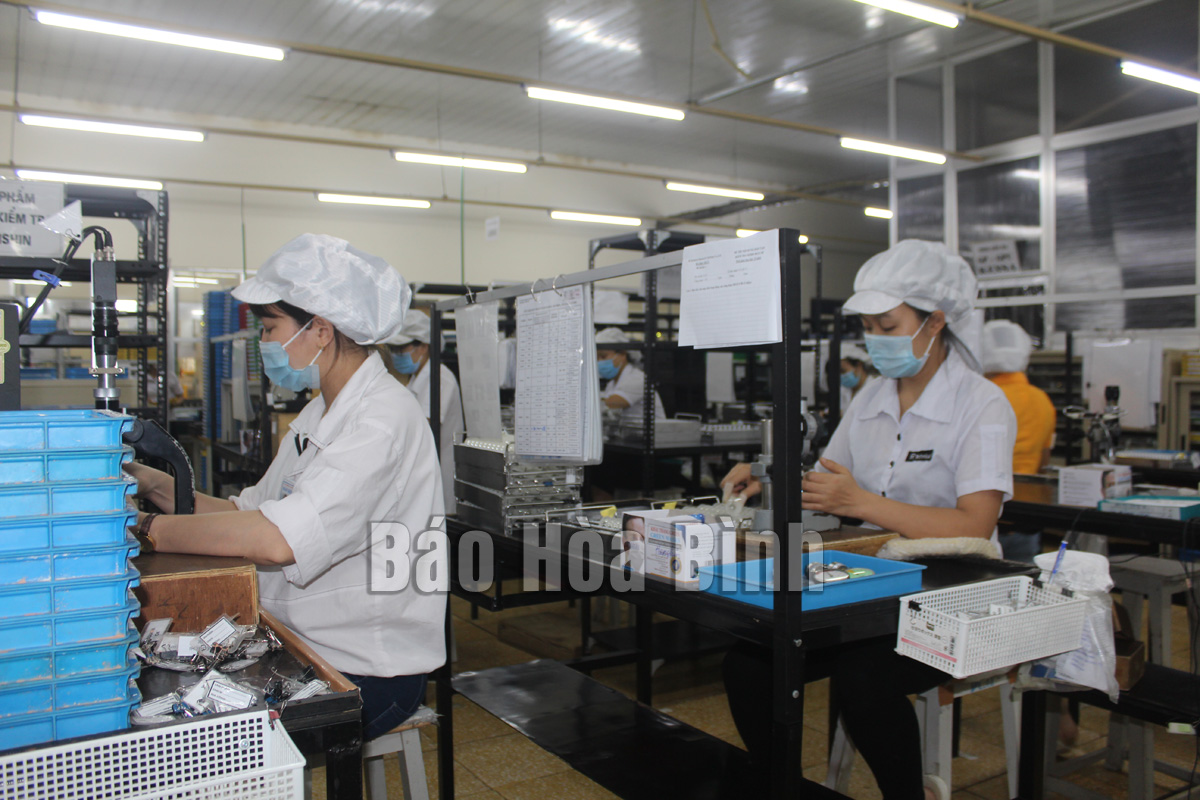
(HBO) – Over the past three decades since it was re-established, Hoa Binh province has taken major steps in the "Doi Moi” (Renewal) period, with imprints in foreign affairs that aimed to strengthen relations with foreign countries, organisations and localities and foster people-to-people diplomacy. The move was expected to take advantages of external resources for development.

Japan-invested R
Vietnam Technical Research Ltd. Co., located at Da River Left-bank Industrial
Park, is among the largest contributors to Hoa Binh’s total exports.
The province has diversified ways of communications and promotion to better
introduce its potential, strengths and orientations among local and foreign
people.
Hoa Binh plays an active role in international economic integration as it has
issued a number of programmes and plans for the implementation of free trade
agreements (FTAs), including the Comprehensive and Progressive Agreement for
Trans-Pacific Partnership (CPTPP) and the EU-Vietnam FTA (EVFTA).
The province has been on the right track to fulfill commitments and agreements
signed with a number of international organisations, such as World Vision,
ChildFund and Germany’s reconstruction bank KfW. The commitments and agreements
have been strictly enforced as part of the province’s efforts to lure more
investment and funding.
Hoa Binh has also been focusing on improving the local business climate and
accelerating public administrative reforms. The province has given priority to
develop infrastructure and human resources in order to meet needs for growth
and international integration.
The province is currently home to 49 exporting and importing businesses, 26 of
which are foreign-invested, accounting for 53 percent of the total. The
foreign-invested firms are the main driver of the province’s foreign trade,
contributing more 80 percent of the total exports.
Its open policy to welcome foreign investment has provided a momentum for the
local economy. From 2016-2020, Hoa Binh’s foreign trade grew 28.5 percent on
average annually, with the United States, the United Kingdom, the Republic of
Korea, Japan and China being its largest importers.
According to data from the Hoa Binh Provincial Party Committee, the industrial production index for the first six months of 2025 is estimated to have increased by 20% compared to the same period last year. This marks the highest year-on-year growth rate for this period since 2020.
In the first six months of 2025, Hoa Binh province’s export turnover was estimated at 1.145 billion USD, marking an 18.11% increase compared to the same period in 2024. Import turnover was estimated at $ 804 million, a 17.15% increase, which helped the province maintain a positive trade balance.
The lives of the ethnic minority farmers in Tan Lac district have gradually improved thanks to the new directions in agricultural production. This is a testament to the collective strength fostered through the professional associations and groups implemented by various levels of the district’s Farmers’ Union.
With the motto the "product quality comes first,” after nearly one year of establishment and operation, Muong village’s Clean Food Agricultural and Commercial Cooperative, located in Cau Hamlet, Hung Son Commune (Kim Boi district), has launched reputable, high-quality agricultural products to the market that are well-received by consumers. The products such as Muong village’s pork sausage, salt-cured chicken, and salt-cured pork hocks have gradually carved out a place in the market and they are on the path to obtaining the OCOP certification.
In the past, the phrase "bumper harvest, rock-bottom prices" was a familiar refrain for Vietnamese farmers engaged in fragmented, small-scale agriculture. But today, a new spirit is emerging across rural areas of Hoa Binh province - one of collaboration, organisation, and collective economic models that provide a stable foundation for production.
Maintaining growing area codes and packing facility codes in accordance with regulations is a mandatory requirement for agricultural products to be eligible for export. Recently, the Department of Agriculture and Environment of Hoa Binh province has intensified technical supervision of designated farming areas and packing facilities to safeguard the "green passport" that enables its products to access international markets.



